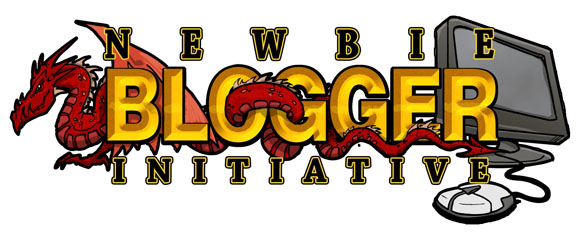As I tell my students, Dame Inspiration is a fickle mistress. One of the hardest challenges any writer faces is knowing what to write about and then having the gumption to go through with it. Let me tell you, I face my own struggle with writer’s block every day. Sure, it doesn’t hurt me much in the blogging department, but in my professional life? My own anxiety about the quality of my writing keeps me from publishing as many articles as I’d like. As such, I’m writing this blog entry to coax both my readers and myself into happy, healthy writing habits.
My theory on creativity is that almost all writers or would be writers have a mountain of content locked somewhere in the furthest corner of their brain, just waiting to be set free. I know I’ve spent countless hours over the last year explaining to people (and myself) the entire plot of a vampire series I intend to write. . . someday. I’ve developed it enough in my mind to have first and last names for all the characters, an opening paragraph that I’ve now memorized, a good number of chapter titles, and a plan for every major scene in books one and two. I even dream about the heroine on a surprising number of occasions. Did I mention that the actual writing on this project comes to a sum of two pages? Why is that, do you think? I have absolutely nothing to lose by writing my thoughts down, right? Well, that’s not entirely true.
The Lure of the Possible
Four years ago, at the beginning of writing my dissertation, I took a seminar on how to begin. Yes, I’m the type of person who takes a class every time I need to know how to do something–I can’t help it, I suffer from academophilia. In that particular class, I learned something startling. Most cases of writer’s block are not caused by a lack of material or a lack of interest on the part of the writer. They are the result of fear and anxiety. One would think that a writer would feel better the moment that words finally hit the page–but it’s just the opposite. You see, any time I’ve actually written something down, I have to deal with my actual, real blog entry or short story, not the ideal one that I might have written under the most favorable of conditions. The truth is that the ideal is always better–it is a dream, a thing of cobwebs and shadow, to which the real cannot possibly compare. The major insight of this seminar was that writers actually feel more unhappy, not less, once their work has been started. How does one overcome the anxiety? I’ll tell you what I tell myself, and what I tell my students. It must have worked to some degree, because I actually did finish my dissertation on schedule. Recognize that first drafts are always bad. That is their purpose in life–to be utter, total crap that you can then toy with, rearrange, dismember and, if necessary, discard as you revise. I am sure there are some writers who publish their first drafts, but it takes a great deal of experience and expertise (and probably a mountain of past failed drafts) to get to that point.
For those writers who would like to get from the possible to the actual, the following strategies can help you come to see writing as a process, mostly mechanical, that has a lot more to do with hard work than inspiration.
Control Your Environment
The second thing that prevents many writers from producing as much as they like has to do with the environment they work in–and by this, I mean both mental and the physical space. Ideally, we’d all like to write in a perfectly beautiful, solitary space, carried on to verbosity on a wave of euphoric inspiration. That doesn’t happen. Writers who seek that out every time end up as hermits or drug addicts–or worse, both. Some of us can, like writer Annie Dillard, build a writing studio in the back yard to escape the world. I’m sure this is quite effective, but writers starting out won’t generally have the capability to set themselves up as modern-day Thoreaus (or worse, modern-day Van Goghs, permanently high on absinthe and turpentine). Instead of lamenting your lack of a rustic, solitary cabin with an excellent internet connection, work on the environmental factors that you can change. Believe me when I tell you that college students with their myriad distractions can write brilliant papers–but most of them can’t do so in a dorm room while their drunk roommate plays Xbox. I suggest the following steps to improve your writing environment. Physical space, after all, helps create mental space.
1. Find out what level of noise and companionship you like. As an experiment, take your notebook or laptop to a fairly busy cafe. There should be noise all around you–the hum of conversation, the clink of spoons against glass, the high pitched squeal of the espresso machine–but none of it is directed at you specifically. Now, set yourself a very simple writing challenge. Write a long, involved email or letter to a friend explaining everything you’ve been doing for the last two weeks. As you know, every one of us is behind on our correspondence, so this will be a useful exercise. Note the time when you start and when you finish, and after you sign off, write down a few words about the difficulty of the exercise. Did you write a good letter? Were you often distracted? And if you were, did those distractions help you think, or did they chase the thoughts out of your head?
When you’ve completed your public writing exercise, it’s time to indulge in some private writing. Set an alarm for an hour early–preferably at a time when no one will be awake. Write in a room empty of clutter, noises, interest of any kind. If you’re a student, I suggest a study room at the library on Saturday morning. If you’re at home, write barefoot and in your pajamas–with or without a coffee cup. Now, write a letter or email of the same length and detail as the public one, and time yourself. When you finish, reflect on the experience and note whether it seemed easier or harder, more or less pleasant, than your exercise in public writing.
The results of this little experiment should give you a baseline reading on how you best like to write. I chose personal correspondence as the assignment because it’s a type of writing that causes little anxiety for anyone. After all, our friends love to hear from us, and they couldn’t care less if we use metaphors or not. The only factors causing possible anxiety should have been environmental. What did I learn from doing this exercise myself? That both types of locales have their advantages. For me, I’m faster at home, but I’m more likely to work on what I’m supposed to be doing in public. Experience tells me that while I’ll abandon my writing for lolcats after five minutes if I’m sitting barefoot at my breakfast table, I won’t do the same at Starbucks. I choose my different environments based on my goals for the day and how motivated I feel. If I’m less motivated and I need to write anyway, it’s off to the coffee shop. I find that I don’t hear the distractions after a while–it’s white noise to me, below the threshold of notice. But the mere fact of being in a public place keeps my butt in the seat and my hands on the keys more consistently. However, I’ve got to confess that I mostly blog at home in my pajamas. Why? Blogging, for some reason, doesn’t hit my anxiety buttons like literary criticism or novel writing do. I think it’s the informal, personal nature of the medium.
Have a Writing Ritual
The horrible affliction of writer’s block has a great deal in common with insomnia. In both cases, the mind and body are out of sync, and we just can’t manage to do the thing that we most need or want to do. Thus, it makes sense that the advise that helped me overcome my own insomnia also worked on my poor writing habits. Once you find something that works, keep certain elements the same every time. Here’s what you might do.
1. Write at the same time every day. The more writing becomes a part of your routine, the easier it will be to make yourself do it. It’s not a terrible bother to brush your teeth every morning, is it?
2. Go to your regular writing spot(s). It’s time to put the knowledge you gained from our earlier exercise into practice. If you have an office or a rustic cabin, this is quite easy. If you’re a laptop user like me with no actual desk, you’ll have to get creative. I have three spaces that I work in: my office at work (suitable for research and reading), the leftmost cushion on the couch (suitable for heavy writing), and the Barnes and Noble cafe (suitable for reading and taking notes). I have a feeling though, that if I really wanted to write that vampire novel, I’d take the laptop to Barnes and Noble. For writing with secondary sources, I’m stuck with the couch, because no one wants to drag an enormous bag of books to the bookstore (from, of course, is another story entirely.
3. Have the same drinks and snacks every time. For me, it’s coffee or diet coke. I don’t eat while I write on the computer, as my last laptop got irremediably sticky. If you do get the munchies, I suggest popcorn, edamame, apples, or carrots. Cheetos are a really, really bad idea. Granola bars are also surprisingly crumbly. It’s not that you need a drink or snacks, of course. It’s just that, as it becomes part of your routine, your favorite coffee cup will help you write. I, for example, love plain white cafe-style mugs. All my mugs from home look like they could have come from a cafe (and now it really irks me when cafes use oversize or glass mugs). Even seeing a white coffee mug makes me think of reading and writing–which is a very helpful association if you’re trying to get some words down. Caveat–as I write with a coffee mug on my lap desk next to my laptop, or in the best case scenario, precariously balanced beside me on the couch, I’m sure I’m headed for tragedy and nasty laptop death one day. Perhaps at some point I’ll buy a couch with a built-in cup holder.
Practice Pre-Writing and Post-Writing
I would not expect even the best novelist to produce her best sentence in the first fifteen seconds of a writing session. You have to work yourself into it. For pre-writing, I suggest that you keep a separate notebook or document purely for your feelings and anxiety about the writing process. I used this technique for my dissertation, and I can tell you, my pre-writing scrapbook is full of every curse word I know and dire proclamations written in all caps. Somehow, a few minutes of writing anything will reconcile me to doing what I’m supposed to be doing.
Post-writing is equally important. The idea is to leave yourself a plan for the next day’s work. Human beings write better in coherent chunks. If you can, it’s always ideal to write a whole blog entry or a whole chapter at one setting, but with lengthier projects, this just isn’t possible. For post-writing, I use my primary document. I append post-writing comments directly to the day’s work, and for me, it’s usually a one-to ten-step plan of what I need to accomplish in the next session. I know from experience that my maximum production in one sitting is somewhere around 4 pages double-spaced. This isn’t very much compared to the overall length of a dissertation (300 pages double-spaced) or a fantasy novel (up to 700 pages double-spaced). Like Hansel and Gretel, you have to leave a trail of breadcrumbs behind you. Now, sometimes I don’t follow the path I’ve laid for myself. Writing is a process of continual discovery, and when it takes a left turn, I like to follow it to its logical end. However, it’s comforting to have a to-do list. If I don’t accomplish a step in the plan, I save it until I do. At the end of chapter three of my dissertation I had five pages of excellent plans that just never came to fruition. I only deleted them when I was certain that I was done adding new material to the chapter.
Time to Write, Right Now
The techniques I’ve described have helped me tremendously. Even though I’m a “professional writer,” (it still feels odd to call myself that, though it’s in my job description) I still need them. I still wrestle with the angel every time I sit down to write–especially if my job is on the line. I urge all aspiring or current writers to see inspiration, and writing itself, as a mechanical process that obeys certain rules. If you put work in, you get results out. That work does not have to be brilliant–it just has to be present. A great second draft, after all, can be written from any sort of first draft, even the worst one possible. However, a great second draft cannot be produced with no first draft at all to support it. So, open up your word processor–today–and see what happens.








